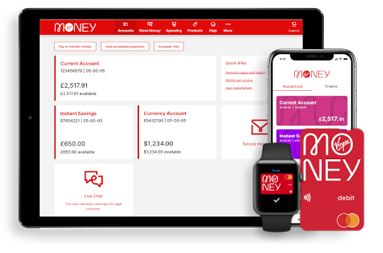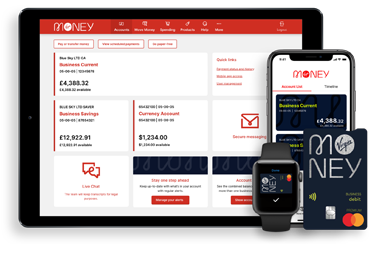-
Login
More Login links
Internet Banking
Business Internet Banking
Started an application?
Other services
Help
-
Register
More Register links
Internet Banking
Business Internet Banking
Other Services
- Our Products More business product links
Bank accounts
- Business current account
- Business choice account
- Switching business accounts
- Compare all business accounts
Savings accounts
Loans and Finance
- All Treasury solutions
Treasury solutions
Help and support
- Online Banking More online banking links
BusinessOnline
- Commercial More commercial business links
Business enquiries
Contact us about a general enquiry.
- Corporate and Structured Finance More corporate business links
Corporate and Structured Finance
SME Cashflow Finance
Unlock your cash flow potential. At Yorkshire Bank we take a flexible approach to business borrowing.
Lending is subject to status and eligibility.
- Our Sector Expertise More sector expertise links
Uncovering hidden dangers when buying a business
< back to all business news articles
18/10/2017
As you’d expect every business will have things that don’t always go right, or are exactly how they should be. You’d be wise to investigate all the claims the owner makes to make sure you’re getting what you are paying for when buying a business.

A business owner who has nothing to hide will also outline the reason for the sale. They might have decided to retire, want to start another business, or just had enough. Very rarely will they say it’s because the business is losing money or the future isn’t bright.
Try to pin them down on their reasons for selling.
Common hidden issues
Without being too paranoid, look out for:
- Aging equipment and machinery that needs replacing soon. Some business owners sell their business before they need to make another large capital investment in equipment. Make sure whatever you buy is in good condition, and will last another 5-10 years (or longer). If the business owns the equipment, make sure warranties are up to date and nothing needs major repair work done. If it's leased, check the leases to confirm that maintenance is part of the deal and that they are on-going.
- Disgruntled employees who may take clients or intellectual property with them. You can often tell how well a business is being run by the attitude of those who work for it. If it has good systems and processes, you'll find that staff are happier and more secure than if they're forced to work under conditions that make their days difficult. Take a measure of staff morale and if it seems low, try to find out why. Identify key employees and check that they are happy for a switch of owners, check they have restraint of trade clauses in their employment agreements.
- Debts in the balance sheet that could show past losses. Don't look just at the profit and loss and cash flow; look at loans, debts etc.
- Outdated and too much inventory. Check the stock levels and be aware of anything that's expired, out of date or just not selling. If you're buying a business that sells perishable goods, you need to re-adjust their value on the balance sheet. Some business owners will include product or raw materials that will never sell; don’t pay for their poor buying decisions.
- Customer contracts or agreements that are about to expire. Find out if any key customers have just cancelled, or are about to end their supply agreement.
- Overpaid employees or an unbalanced workforce. You don’t have to take on any of the existing staff if you structure the purchase properly. Find out the industry average for wages to sales to make sure the business is operating to a similar level as everyone else.
- Suppliers will cease supply or will soon increase their prices. Check there isn’t any looming possible threat to the business operation.
Low Owner’s Discretionary Income (ODI)
What does the current owner pay themselves? To artificially increase the net profit, owners could reduce their drawings or salary (which lowers expenses), and then talk up the ‘cash’ component of the future profit. It’s a way to temporarily make the business look better than it is.
Make sure you add in the salary/profit you need, not what the current owner is getting.
Increased competition
Often a new (larger) competitor can trigger a business owner to want to exit. Find out if there are any new entrants, or new business models that could hamper your business in the future.
Weigh up the competitive advantages of each competitor and decide if you could compete against them. Then do some customer research. Try and find people who've used the business you’re considering and get their feedback. If the business has a bad reputation and customers are consistently using their competitor, ask yourself if you want to take on the responsibility of turning the business around.
This is also a good way of finding out what reputation the business has in the community. You could also read online reviews of the business and compare them to the competition, or skim any social media sources.
Spend as much time as you can talking to the locals about the business. After all, if you buy the business they'll be your customers, so they are not only a great source of information on the business's reputation, but you'll get a clear idea of how many of them will be customers in the future.
Change in zoning or regulations
It's a good idea to check with the local council to make sure that there aren't any zoning changes planned, or that something like a huge shopping mall isn't about to rise up and snatch away all the business's customers.
Check any industry changes, new government regulations, import or export implications, or currency fluctuations.
Summary
Your analysis of the risks involved in any business prospect should be undertaken with a business broker or your lawyer or accountant. Professionals will know what questions to ask and how to spot when things are being hidden or records are being fudged. Always look for transparency in the seller; they are protected by the non-disclosure agreement you will have signed and should therefore be open and honest about their business. Beware of sellers who seem reluctant to provide detailed information.
Additional resources
POSTED IN: Insurance,2017,Growth
SHARE
Related Articles
You are here: Business Banking > Business News > Articles
- About Yorkshire Bank
- About us
- Virgin Money UK PLC
- Media relations
- Careers
- Modern Slavery Statement

Internet Banking has moved
To log into Internet Banking you now need to use Virgin Money Internet Banking. You'll get the same great service and are able to access all your accounts.
Your log in details will stay the same and you can log in directly from the shiny new Virgin Money website.
Continue to Virgin Money Internet Banking
Go to the Virgin Money website
Be Alert
Never tell anyone a token 3 response code, even someone from the bank. You should only input these codes to our secure Business Internet Banking service when you’re sending and making payments. If anyone calls and asks for a token 3 response code or asks you to authorise a payment on the App for fraud checks, hang up and call us on 0800 085 2914 from another line if possible, remember the Bank will never ask you to disclose your security details.
Continue to Virgin Money Business Internet BankingYou can find impartial information and guidance on money matters on the “MoneyHelper” website.
Yorkshire Bank is covered by the Financial Services Compensation Scheme (FSCS), Find out more.
